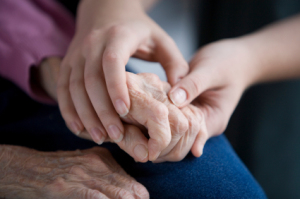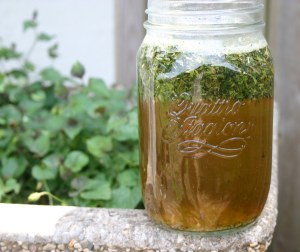Iâve been caring for my mother, who was diagnosed in January with pancreatic cancer, one of the most lethal cancers I know of. Even so, it wasnât until the other day that I was struck by the thought, âIâm a caregiver again, to someone with a terminal diagnosis.â
I was flooded with memories of the decade I spent caring for my first wife, including all the beauty and wonder, the struggle and the learning. Iâve been remembering how I learned the importance of taking care of myself in a way I had never known before.
Learning that lesson while caregiving often seemed counter-intuitive. No, I needed to take care of her! And of the kids! But it didnât take long to realize that if I let myself get past a certain point, if I let myself drop, I would be unable to do anything for them.
A particularly stunning example was when I lifted the wheelchair even though my back had been feeling tender, and laid myself up for two weeks. How clear did it have to get? I remember going away for a weekend or two, leaving friends to take care of everything, so I could hit the reset button. I came back ready, willing AND able, renewed for the care I wanted to be giving. I found that my capacity for caregiving was much higher when I attended to my own balance.
So now, I bring all that to the endless appointments, procedures, tests, talks about how my mother wants to die, finances, closet sorting and names on the bottom of furniture, (sheâs a planner). Iâm also remembering once again how to live with the phrase âterminal diagnosis.â Iâm remembering how the constant awareness of death, since I no longer resist it, leads to an appreciation of the love I have for my mother, for this time with her. I was already preparing for the loss of my mother (sheâs 84 and IÂ have a low denial quotient) but now I am living that preparation each moment.
I have a friend with ovarian cancer who doesnât like that term, âterminal diagnosis.â She says, âeveryone has one and who made these doctors gods anyway?â But for me, it is not that I now know any more about the time of my motherâs (or anyoneâs) death, but that I walk with the awareness of death keeping me awake. I go forward with the knowledge that accepting death makes life more meaningful. For that Iâm thankful.
Cheryl Jones has been working with people facing loss in their lives for thirty years. She is the host of Good Grief, a weekly radio show on the VoiceAmerica Health and Wellness Channel, about the transformative potential of our losses. You can learn more about her at her website Weathering Grief Â






